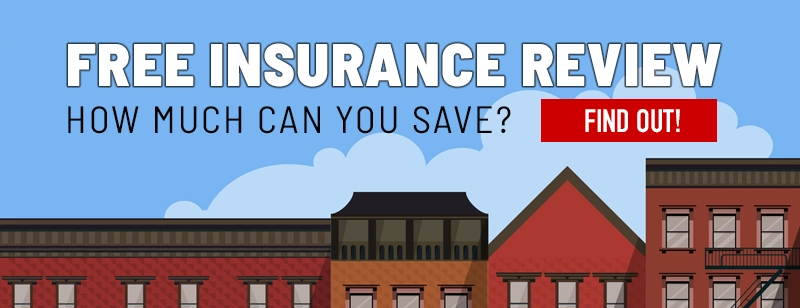Best Practices for Insuring Apartment Buildings, Condos and Co-ops

Insuring apartment buildings and condominium and co-op buildings can be complicated. Understanding where the responsibilities lie between owners and tenants—as well as what insurance you can and should require from tenants—can be equally complex.
And if you sit on the board of a condo or co-op owners’ association, you have a responsibility to do what’s best for the association, as well as your fellow owners.
The following best practices for insurance can serve as a checklist to make sure you have the right coverage.
Apartment Building Insurance Best Practices
In addition to general business policies, apartment building owners may need these protections that relate directly to the building:
- Property insurance to cover repairs, replacements or damage to the building, as well as any personal property in the building, whether you live in it or not.
- Comprehensive liability in case anyone—tenant, worker, visitor—is injured.
- Loss of income, or Loss of Rents, insurance if apartments are empty due to a covered peril.
- Crime insurance for problems such as vandalism or employee theft.
- Equipment breakdown insurance to mitigate any damage that might result from malfunctioning equipment.
- Flood insurance, especially in areas that are designated flood zones.
- Umbrella insurance, which offers an extra layer of protection for landlords and building owners. Common limits range from $1 million to $100 million.
Depending upon the situation, you may not need coverage for all of these items. We highly recommend reviewing your coverage with your insurance broker/agent.
Best Insurance Practices for Condos/Co-ops
Because condo and co-op owners have responsibilities that extend beyond their own units, condo and co-op boards should include individual insurance requirements in their legal documents.
Two key areas are dwelling coverage and liability.
Without mandated coverage amounts, owners may insure their dwellings and contents for far too little. If their unit is damaged, they may not have enough to rebuild.
In the event of damage—say, by a fire or other disaster—the building policy will replace the “bones” of the building (concrete floors, bare walls), but the hardwood on top of the concrete and the sheetrock and finish on the walls are the responsibility of the unit owner. Other items that would be covered by the unit owner’s individual policy, include essentially anything that a mover cannot carry out, such as kitchen cabinets, built-ins, bathroom (tile walls, tile floors, bathtub, toilet).
Purchasing only enough coverage to replace the contents would leave the unit owner, and potentially their neighbors, liable for significant expenses.
Liability insurance is also a place where owners may skimp to save on premiums. The building’s bylaws should require at least $1 million in liability coverage per unit.
Some of this may depend upon whether your building’s master policy is “all in” (covers original items built into each unit, including flooring, cabinets, bathroom fixtures, wiring and plumbing) or “bare walls” (only covers the structure of the condo and common areas—things that are collectively owned). Make sure every board member understands what coverage is included in the master policy. Note, too, that some policies may only cover restoration to the unit’s original condition, not including any improvements that the owner may have made.
Board members should understand that not mandating adequate insurance for unit owners, and not monitoring compliance with those requirements, could increase the potential liability for them as well. Board members have a legal obligation to do what’s best for the building and the owners.
For example, if a unit owner is injured in another owner’s unit, or their unit is damaged by a fire or burst pipe in an adjoining unit, the injured owner may seek a claim against the neighbor’s policy. If that policy is inadequate, the next move up the responsibility chain may be to the board and the building.
For more information, check out this article on finding the best insurance for condos and co-ops.
Other Insurance Best Practices for Building Owners & Boards
In some cases, more specialized insurance is a good idea. For example, if a landlord or condo/co-op board plans to host a party where alcohol is served, or owners/tenants can host parties in a common area, a Host Liquor Liability policy can protect everyone from liability. If a protest outside causes damage to any units in the building, the right insurance will cover that.
COVID-19 adds even more challenges. Some policies specifically exclude coverage. Landlords and condo/co-op boards should not only double-check coverage, but understand and use best practices when sanitizing common areas, protecting residents from exposure and notifying residents if someone in the building is infected.
Finally, keep the certificates of insurance from contractors who work in the building on file, and never allow a contractor to work without having that information on hand. If, for example, the HVAC contractor or plumber does something wrong and causes a major leak, you want to file a claim against their policy.
If you have any questions about landlord insurance or your current insurance policy, or if you would like a free insurance review, please call us at 877-576-5200.


Comments (0)